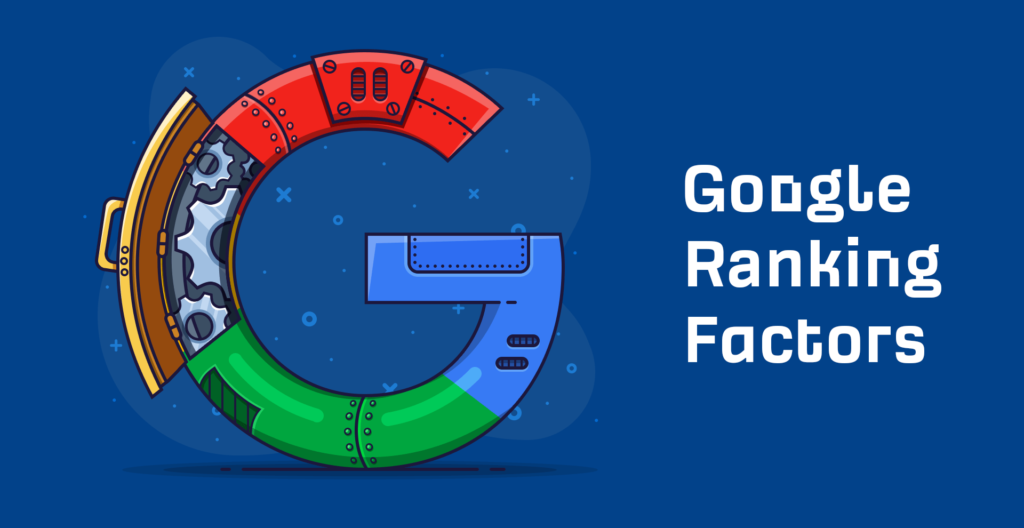Have you ever wondered how well your website ranks on Google? Have you ever thought if there is a way to know if a website is ranking? It’s crucial to figure out this information if you want to improve your SEO approach. Finding out where your website ranks on Google may be as simple as searching for a keyword you want to rank for and looking at the first page of results.
This method, however, takes more effort and provides little insight into your page rankings. So how do you know the ranking signals, or if you are on the right track for a higher ranking? This post seeks to answer these questions.
- Organic Keywords: The total number of terms for which the site ranks in the top 100 organic search results is known as organic keywords. Because SEO normally takes 4-12 months to see traffic effects, measuring a growth in organic keywords is vital to evaluate. An spike in organic keywords, on the other hand, indicates that SEO efforts are starting to bear fruit, and that traffic will follow as content climbs the rankings.
- Leads and Sales: Because there are so many different ways to measure inbound leads, our best advise is to develop a quantitative and qualitative method for your firm to track lead activity. Inbound phone calls, contact form submissions, e-mail sign-ups, and other quantitative methods of measuring leads could be used. Monthly conversations between the client and the agency to review lead quality, capturing all contact form submissions, and so on are examples of qualitative techniques to measure leads.
- Organic Traffic: Because increasing search traffic is the true purpose of improving search engine rankings, you should focus your efforts here. Increases in organic traffic are clear evidence that SEO work is paying off. Any rise in keyword position could be the product of a typical search engine fluctuation.

Ranking Factors
Knowing where to direct your SEO strategy for the largest bang may seem unattainable with Google evaluating sites based on hundreds of ranking parameters. What we do know is that Google will continue to tweak ranking signals in order to best serve searchers’ requirements.
This means that even fresh SEO trends have roots in the present algorithm, and it’s perfectly possible to rank well with a little innovation and SEO know-how. Among the plethora of factors that affect rankings, the top ranking factors are as follows.
Quality content: The material on your website and blog must still be of high quality. The king of content is still content. Your content must contain useful information. It’s possible that creating pages with no genuine value will come back to bite you. The goal of high-quality content is to create pages that keep users on your site longer, lower their bounce rate, and give them with useful information.
Freshness: Many people are perplexed by the concept of freshness. Don’t just change the date on evergreen content every year. To determine what needs to be renewed, you must go into the meat of the content. Look at your data before making any changes to your content to help you make better judgments. It’s a good idea to do quarterly content audits to determine which items need to be updated and which should be linked to comparable pages.
Mobile-friendly sites: The way Google indexes your site is called mobile-first indexing. If you have a distinct mobile website, instead of the desktop version, the URL of your mobile site will be indexed and used for ranking. Even though Google has stated that there is no one-size-fits-all approach to mobile website design when it comes to results, a responsive website is their preferred structure.
Page experience: Enhance the user experience. As we’ve seen with the latest modifications to Page Experience, user experience (UX) has an impact on SEO. Site architecture is an important part of the user experience and has a big impact on SEO. Site architecture may assist search engine crawlers find more pages on a website, as well as help consumers find what they’re looking for through improved website navigation.
On-page optimization: On-page optimization, which deals with the “behind the scenes” components of your content and SEO, is closely tied to Page Experience. These elements have been there for a long time and continue to have a substantial impact on the visibility and SERP position of your website for your target keyword themes. Search engines and users will find your existing high-quality content faster if you optimise your website. For effective on-page optimization, make use of metadata, highlighted snippets, and schema.

SEO Audits
An SEO audit is the process of finding issues or faults that may hinder your website from ranking well on Google and other search engines. There are several components that make up a proper SEO audit, including: Ensure that Google is crawling, indexing, and rendering your site appropriately, Checking for on-page SEO issues on your website, Ensure that your website provides a positive user experience and more. SEO audits are a great way to ensure that you are on the right track in your website ranking strategies. An SEO audit is conducted in the following steps:
- Crawl your website.
- Conduct a manual Google search.
- Ensure that just one version of your site is available for browsing. Perform On-Page Technical SEO Audits.
- Manage Internal and External Links.
- Check Your Site Speed.
- Check Your Off-Site SEO and Conduct a Backlink Audit.
Takeaway
Analyzing SEO ranking criteria should assist you in auditing your SEO agency and determining whether SEO is beneficial to your company. This audit could result in a few different outcomes. You may realise that your SEO agency is doing admirably, or you may discover that the results are disappointing. In any case, before leaping to conclusions, it’s a good idea to give your agency the benefit of the doubt. These SEO ranking indications will make for some interesting conversation starters.




